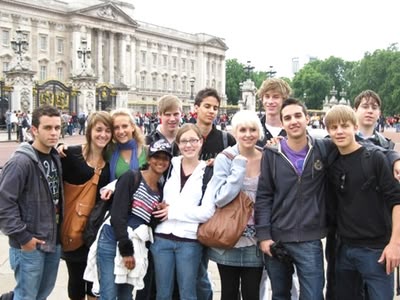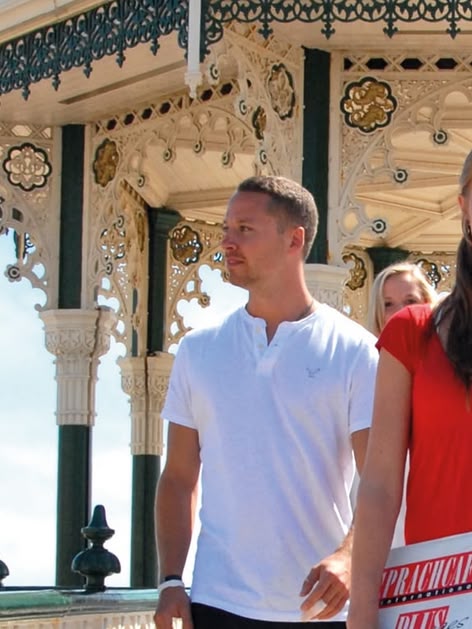Top 10 English Grammar Rules You Must Know
1. Present
Simple Present:

The simple present tense is used to describe states that are not planned to change, that repeat themselves, statements with general validity, or actions that follow one another in the present:
- I live in Frankfurt.
- I go to work at 8 o'clock every day.
- When you go to school, you learn, you do your homework, and you play with your friends.
- The train departs every 15 minutes.
Keywords: Adverbs that introduce frequency or repetition: always, usually, often, sometimes, on Sundays, every day...
He, She, It - 's' must come along!
In the simple present tense, an -s is added to the 3rd person singular he, she, it:
• He works at the gym.
For verbs ending in -o, -s, -sh, -ch, -z or -x, an -es is added:
• She watches TV every day.
The auxiliary verbs 'do' and 'does' are used in the simple present tense to form questions or negative sentences. 'Do/does' is always placed before the main verb. The negative form is 'don't' or 'doesn't' in the third person singular.
- Do you have a question?
- I don't eat meat.
- Does he need help?

Combine top-tier English lessons with afternoon strolls past world-famous museums, parks and landmarks.
Present Progressive:
The present progressive is used to describe a state one is in or something one is currently doing. It can also describe an action that will take place in the near future, one that has already been agreed upon, or an action that is limited to a specific period of time.
- I'm still paying off the loan from school.
- He is waiting on the bus.
- I'm working at the pharmacy in my holidays.
Tags: at the moment, now, right now, in the morning, in the afternoon, later, tonight...
2. Perfect
Present Perfect:

The present perfect is used to describe a state that has an impact on the present, an action that continues into the present, actions that have just been completed, or actions that have never, once, or several times taken place.
- She has never played tennis.
- You have already packed your suitcase.
- I have just made an appointment at the doctor's.
Tags: already, ever, never, just, yet, so far...
Past Perfect:
The past perfect tense is used for actions that preceded a point in time or an event in the past. The second action is described in the simple past tense.
- My brother ate (Simple Past) my cake which we had baked (Past Perfect) before.
- She was late (Simple Past), because her car had broken (Past Perfect) down.
Keywords: already, just, never, not, yet, until that day, once... ! This tense is also used for the third form of if-clauses!
3. Past
Simple Past:

The simple past is used for actions that have already been completed in the past, recurring actions in the past, or a new action that interrupts another action in the past.
- I went to the doctor last week.
- I finished school in 2018.
- I was in summer school last year.
Keywords: last year/week/month, ago...
! Attention: There are many irregular verbs that must be memorized!
- The y in verbs ending in -y becomes an -i: hurry → hurried
- Verbs with endings like t or l are doubled: travel → travelled, admit → admitted
- Verbs ending in -e only take a -d: dance → danced
Past Progressive:
The past progressive is used for actions that took place in the past, several actions that happened simultaneously in the past, or an action already underway in the past that is interrupted or completed. The interrupting action is in the simple past tense.
- I was watching TV.
- He was watching soccer while his mother was cooking.
- When I was riding my bike someone hit me with their car.
Tags: while, when, as long as...
4. Future
Will future:
The future tense 'will' is used for spontaneous decisions, unchangeable events, opinions, or promises. In the negative form, 'won't' can be used instead of 'will not'.
- I promise, I will visit you soon.
- We think he will ask her out.
Tags: think, believe, hope, wonder, in my opinion...
Going to:
The future tense 'going to' is used for planned actions in the future and conclusions.
- Next week I'm going to see my mum.
- Look at the clouds, it's going to rain soon.
Tags : next week/month/year, tomorrow...
Simple Present:
The Simple Present is used for planned future events that are certain because they will take place according to a schedule.
- His birthday falls on a Sunday next year, right?
- The bus arrives at 5 pm tomorrow.
- The bar opens at 6 pm tonight.
- Her test is at 8 am next Monday.
Present Progressive - "Present Continuous"
The present progressive tense is used for events and agreements that have already been arranged for the future. At least one person affected has already been informed that the event is taking place.
- She is getting married next year.
- We are meeting up with some friends when we get to London.
- I'm spending Christmas with my parents.
5. For or Since?
Translated, 'for' and 'since' both mean "since". When exactly do you use which?
For - period My brother has been a teacher for two years:
- My brother has been a teacher for 2 years.
My brother has been playing tennis for four hours (He has been playing for four hours):
- My brother has been playing tennis for 4 hours.
Since - My brother has been a teacher since 2007:
- My brother has been a teacher since 2007.
My brother has been playing tennis since 4 a.m.
- My brother has been playing tennis since 4 o'clock.
Tags:
For: for a long time, for six days, for a couple of minutes, for a few hours
Since: since 2007, since Monday, since 2 o'clock, since he left, since they met, since we started studying.
6. Much or Many?
Use much with uncountable nouns:
- How much food is in the fridge?
- How much money do you have in your pocket?
Use "many" with countable nouns:
- How many friends are invited to the party?
- How many books did you read last year?
7. Some or Any?
When do you use 'any' or 'some'?
'Some' is used in positive sentences, requests, and questions (note the exceptions!):
- Would you like some wine?
- Could you give me some money?
- I bought some food for you.
Any is used in negative sentences or negations:
- I don't want to go anywhere else.
- I didn't buy anything.
- Is there any fruit left?

Experience a unique campus, just minutes from the coast and St. Julians.
! In conjunction with never, without and hardly, any is also used in positive sentences !
- My mum is always preparing dinner without any help
'Someone' describes people we don't know or many people.
- I want to go out with someone
'Somebody' describes a person you know or a small circle of people.
- I want to kiss someone from work
8. If, not When
There are three forms of conditional sentences (if-clauses): 1. The first form of if-clauses involves conditions whose occurrence is probable.
- If you buy me cheese, I will give you money.
- Will you marry me if I buy you flowers?
- If I pass the test, I will celebrate.
- My mum will bake my birthday cake if my boyfriend can't make it.
The sentence consists of two building blocks: If + Simple Present, Will-future + Infinitive
2. The second form of if-clauses involves conditions whose occurrence is unlikely.
- If I passed the test, I would celebrate.
- If I knew the answer, I would write it down.
- I would travel around the world if I had money.
- What would you do if you had more time?
The sentence consists of two building blocks: If + Simple Past, would + Infinitive (Conditional 1)
3. The third type of conditional sentence deals with conditions that cannot be fulfilled. In this case, the conditions lie in the past and are unchangeable. They could also be called "complaint sentences": "If only I had taken that job in New York back then, I would be famous today."
- If I had practiced more, I would have passed the test.
- We would have traveled the world if we had saved more money.
- What would have happened if you had more money in the past?
Here too, the sentence consists of two building blocks: If + Past Perfect, would have + 3rd verb form/-ed (Conditional 2)
Summary:
Form 1: Simple Present - Will future
Form 2: Simple past - Conditional 1 (would + infinitive)
Form 3: Past perfect - Conditional 2 (would + have + 3rd verb form)
9. Gerund
A gerund is a verb that has been nominalized - that is, it has become a noun. In English, this is achieved by adding -ing to the verb.
- Dancing on the table is fun.
- He loves playing soccer.
- Smoking is not allowed.
Tags: to like, to love, to enjoy, to dislike, to hate, can't stand, to complain about, to talk about, to think of... ! Attention: Exceptions when forming the -ing (progressive) form!
10. Who, Which, Whose
When do you use which relative pronoun?
"Who" is always used in connection with people:
- The women who stole my phone was wearing a yellow shirt.
Which is always used in connection with animals or things:
- The dog which ran away last week was found.
Whose establishes the connection between a person and a thing
- The women whose dog ran away was very sad.
Learn English with Sprachcaffe
We will support you in making progress in all areas of the English language!












